Arden of Faversham. Ed. Catherine Richardson. Arden Early Modern Drama. London: The Arden Shakespeare, 2022.
Arden of Faversham is the True Crime Drama of the English Renaissance. Based on the story in Holinshed's Chronicles (supplemented by various ballads, stories, and tales), we learn how Alice Arden and her lover Mosby (and some hired murderers and other interested parties) Murder Thomas Arden, Alice's husband.
The play is fascinating in the way it deals with the plotting of the crime and its eventual fruition. Many failed attempts are made on Arden's life, including those by the comic hit men Black Will and Shakebag.
I read the play a few times when I was in graduate school, but I hadn't revisited it for years. But then the Arden Shakespeare put out a new edition, and I couldn't resist.
"But hold on a second," I hear you cry. "Who wrote this play? If the Arden Shakespeare has produced an edition, does that mean . . . . Could it be that . . . . You don't think . . . ."
Well, yes, part of the interest in the has to do with its authorship, and there are those who think Shakespeare had a hand in it. It seemly likely to be a collaborative play (whether Shakespeare wrote any of it or not), and it was written between 1587 and 1591, which would place it very early in Shakespeare's career.
One of the points of interest in my current encounter with the play is the way its authorship is addressed in the two scholarly editions I have. The 1982 New Mermaids edition mentions the possibility but doesn't take a strong position on the issue:
The Arden Early Modern Drama edition spends a lot more time on whether Shakespeare should be considered one of the authors of Arden of Faversham. It comes short of saying anything with any certainty, but it strikes me as presenting a rosier picture of Shakespeare's participation in the play's composition than the New Mermaids edition did:
You now, no doubt, want to know my take. In re-reading this after many decades of reading Shakespeare left and right, I thought I would surely be able to know for myself—not with the certainty of proof but with the sense of instinct—whether Shakespeare wrote any part of the play or not.
But I don't get a sense one way or the other. I spotted several passages that struck me as Shakespeare-like, but none of them is so quintessentially Shakespeare that it couldn't have been written by another dramatist. And none of the ones I spotted was in Scene 8, often said to be the most likely part for Shakespeare to have written.
The first passage that seemed Shakespearean to me comes from Scene three. The servant Michael, who has been suborned to leave Arden's house unlocked so that the hired murderers can get in and do their job, says this:
To me, that sounds a lot like Macbeth saying
He's here in double trust;First, as I am his kinsman and his subject,Strong both against the deed; then, as his host,Who should against his murderer shut the door,Not bear the knife myself. (I.vii.12–16)
The next one I spotted is from Scene six. Here, Arden is relating a troubling dream to his friend Franklin:
Perhaps when can think of Clarence's dream in Richard III. He says "I, trembling, wak'd, and for a season after / Could not believe but that I was in hell, / Such terrible impression made my dream" (I.iv.61–63).
Finally, in Scene 14, we have a weak possibility of a Lady Macbeth–like connection to blood that can't be washed away:
That's not much to go on, clearly. But it's nice to think that Shakespeare's authorship isn't utterly ruled out by my experience.
Finally, the drama is great. After Arden's murder, various characters start to put together clues—somewhat à la an Agatha Christy mystery with Ardens steadfast friend Franklin serving as de facto detective. In terms of the "True Crime" genre, that section is fascinating and worth providing in full:
It lovely how we get the footprints, the blood stains, the murder weapon, and the stolen items all revealed and pointing toward the guilty parties.
I was very glad to revisit Arden of Faversham, and I'd highly recommend reading it yourself in the new Ardent Early Modern Drama edition.
Click below to purchase the books from amazon.com
(and to support Bardfilm as you do so).
(and to support Bardfilm as you do so).

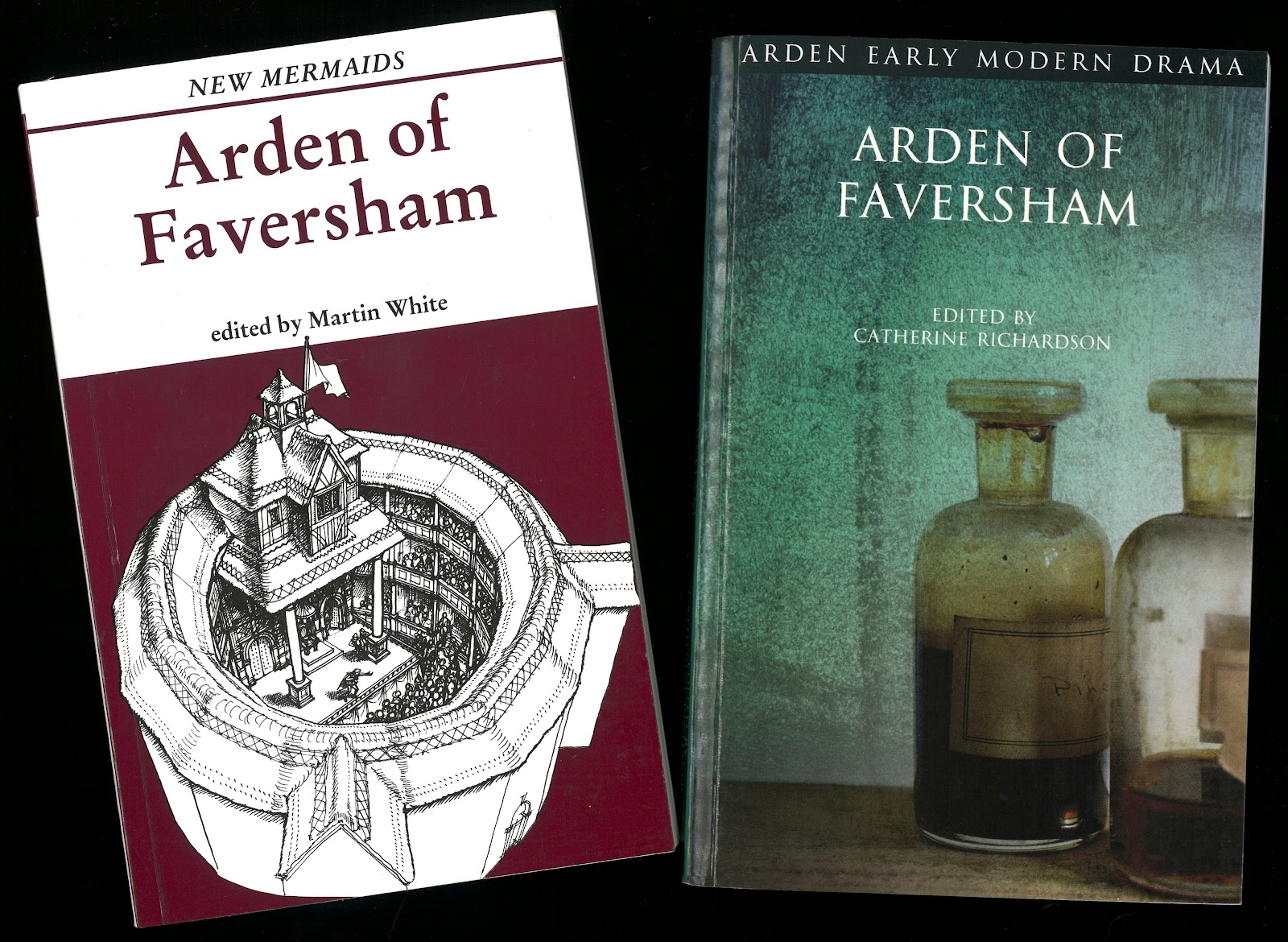

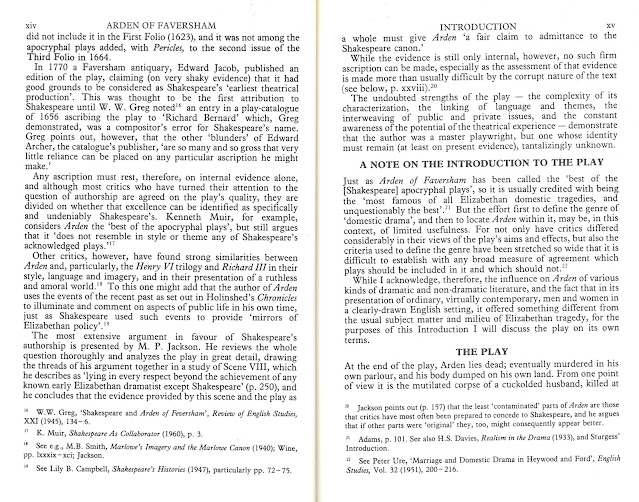

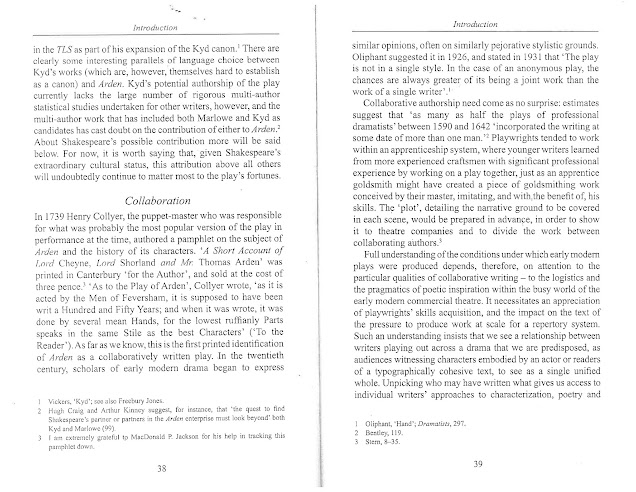
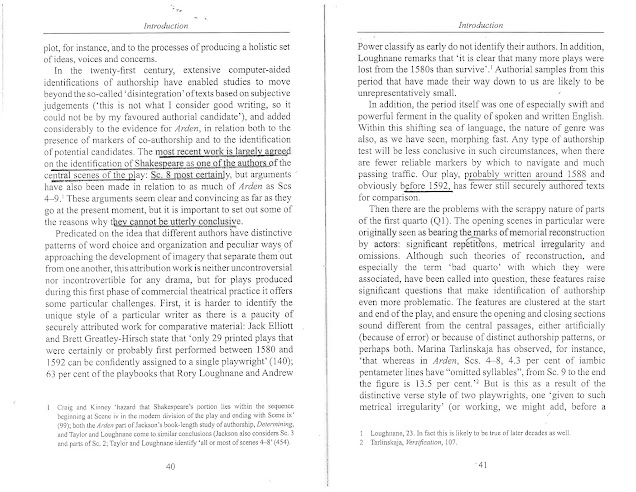
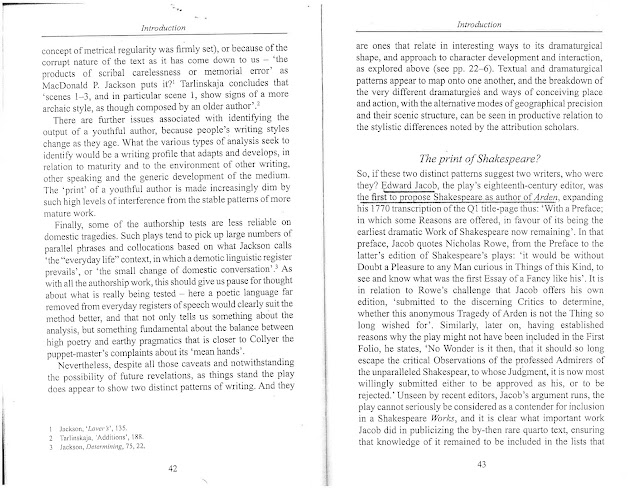
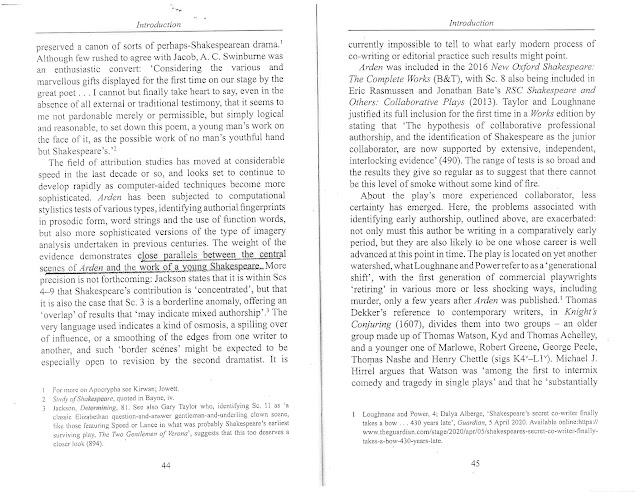





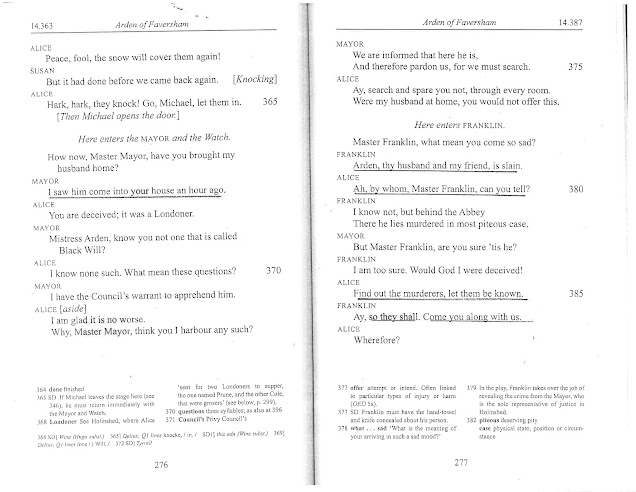
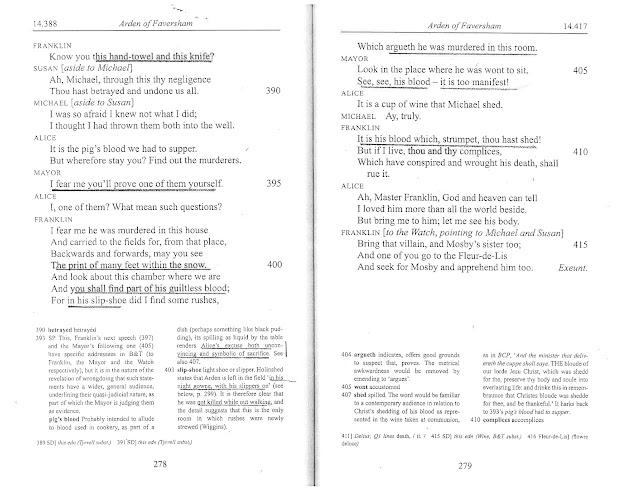
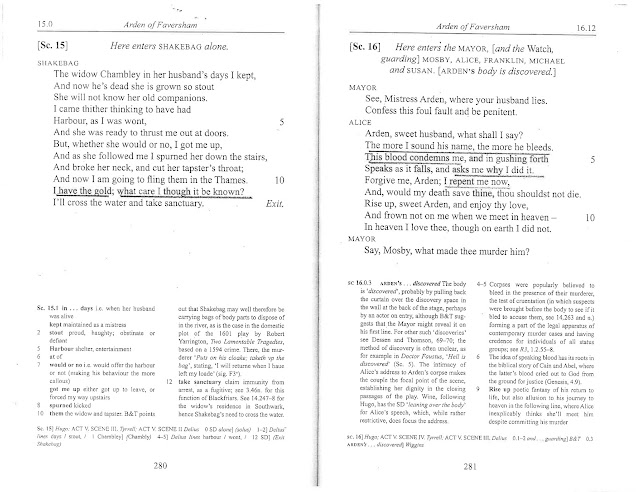


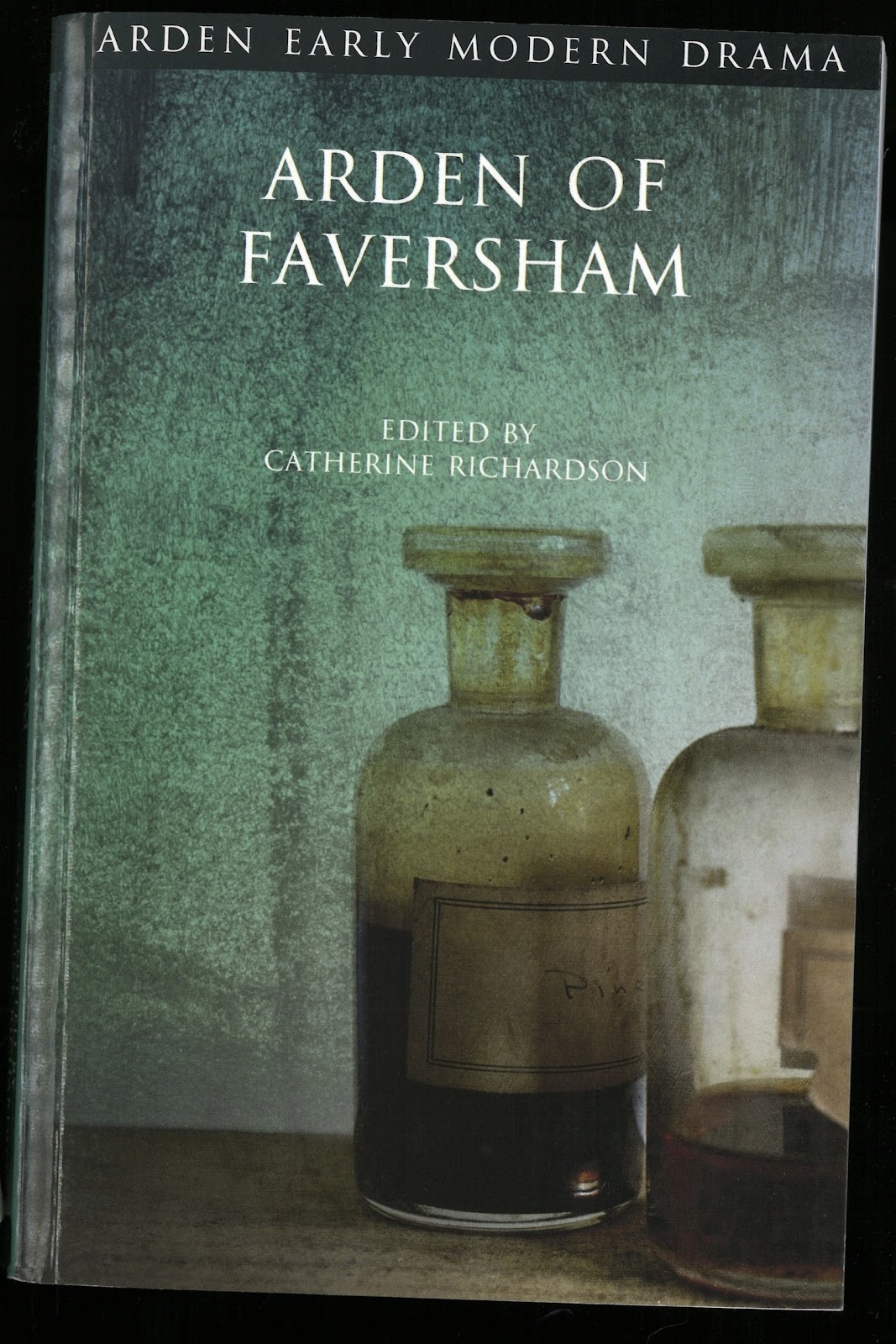







No comments:
Post a Comment